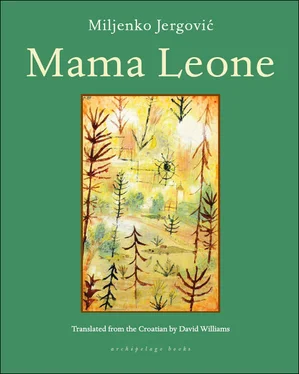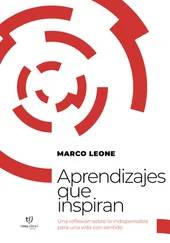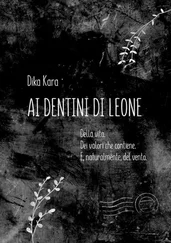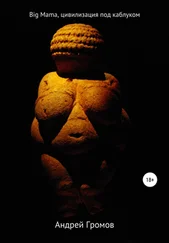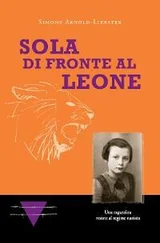Hans became a German soldier when he turned eighteen and he came to fight in Yugoslavia. When I was little, two, three, four, I’d always look out for Hans in Partisan films because no one ever told me they were all actors and that in a film nothing’s real, but even then I knew none of them were Hans because they all died and Hans was still alive. Hans, were you at Sutjeska , I ask him. I was, I was , Hans yells, twice, with Staka and without Staka. . And did you kill Sava Kovačević?. . I didn’t, I shot up into the treetops, you know, into the pines. I was afraid of killing. . So who killed Sava Kovačević?. . I don’t know, there were lots of Germans, and when there are lots of people, it’s hard to know who’s killing whom .
When the war finished, Hans got taken prisoner. He worked building a factory in Smederevo, Partisan Staka keeping watch on him through the crosshairs. Back then he didn’t know how to shout in our language, but there, from a distance and staring down the barrel of a machine gun, he told Staka he loved her, and when she somehow understood what he was saying she loaded the gun and sought permission from Commandant Joža Beraus to execute the prisoner. He said there had been enough killing, confiscated her rifle, and decreed that henceforth she had to keep guard unarmed. Staka bridled and burst into tears, and Commandant Joža gave her a hug and said lassie, you’re fifteen years old, and you’ve got no idea what that weapon’ll do to your sweet little finger, the one that wants to pull the trigger. You’re angry with me now, but one day you’ll say thank you, Uncle Joža .
So it went, Partisan Staka guarded the prisoners, and every morning Hans clutched at the air in front of his chest, made the shape of a heart with his fingers, and blew the heart to Staka. She got mad and reported him to the commandant and got a chiding for her trouble: you should be ashamed of yourself, are you a Skojevka or are you not? You’re there to guard the prisoners, not to worry about their flirting . Things went on like this a whole six months, until one day Hans wasn’t a prisoner anymore and showed up at the construction site in an ugly gray suit and with an army satchel on his back. He stood before Partisan Staka, took a piece of paper from his pocket, and read aloud: I apologize if I offended you, but I loved you and loved it most when you were on guard to stop me escaping. I will always remember you .
Staka spat at his feet, but not hard: just hard enough for him to get the message that she was a Partisan, and that he’d been an occupying soldier. Come the next day she was desolate without him. My heart has gone , she said, and someone reported her. Enough’s enough , said Commandant Joža, I’ve had it up to here with bloody kids who want to kill one minute and fall in love the next . He sent Staka packing, her Partisan days were over.
Hans left for his city, but when he got there his street, his parents, his sisters, none of them were there anymore; everything lay in ruins, and what wasn’t in ruins was dead. Without a single living relative, Hans was left all alone. Back then I could have been a German or a Chinaman, it was all the same, you’re nothing without your kin . Staka was the only one Hans had, so he swung his step back to Yugoslavia. They put him straight in jail. Hans told them he wanted to be a Communist. They asked him why he wanted to be a Communist, and he said it was because of the working class and because he’d been left all alone in the world, and as a good Communist he wouldn’t be alone anymore. They said very well then, you can stay in Yugoslavia, but don’t let us catch you spying . Hans said he wouldn’t spy and headed for Smederevo to look for Staka.
I don’t know what happened next, just that in the end they got married, and that Commandant Joža Beraus was their best man. At the wedding they sang “All men will be brothers” and began the life that came after the one where Hans had been a fascist and Staka a Partisan who wanted to write his death sentence. I don’t quite know how all this came to pass and neither do Grandpa and Grandma. Grandma says they’re both crazy , and Grandpa says they’re not crazy, it’s the times . They philosophize like this after Hans has drunk all the beer, given us our hugs and kisses, and gone off with Staka to sleep in their camp trailer.
It’s not actually a camp trailer because Hans has concreted around it and built a little hut alongside. In front of the house Staka has planted a lemon tree and an oleander tree and roses and marigolds. It’s such a motley mix that Grandma says it’s as ugly as Hans himself and I say it’s as funny as Hans himself. Their weekend house is the strangest place in Drvenik and the building inspectorate has twice come from Makarska to demolish it because they think it’s an eyesore scaring off tourists, but they didn’t demolish it because Hans has a building permit. They said signore, don’t yell at us , and then they left. Grandpa says they’re just looking for a loophole in the law and that in the end they’ll demolish Hans and Staka’s little hut, and Hans says that much worse things could happen, and it would just mean he and Staka would have to start a new life. Hans thinks there’s only one thing for every misfortune or unpleasantness suffered: to begin a new life. Grandpa says this is brave, and Grandma says that it’s dumb.
It’s such sorrow we don’t have children , says Hans, everything is peachy, but that’s so sad . Then it’s like the cat’s got Grandma’s and Grandpa’s tongues, and they look at their hands laid out on the table as if they’re somehow guilty or have done a number on someone because they’ve had three children. There’s joy without children too , says Grandpa. Of course, of course there’s joy, but there’s so much sorrow without children , Hans howls back. You know, children grow up, get married, and leave, you end up on your own again , Grandpa tries to get Hans to quit it. You can be happy on your own too, but without children, without children, there’s such sorrow , Hans nods his head. You get older and forget you brought them into the world , Grandpa sticks to his tune. Whether you forget or not, there’s still joy, but Franjo, buddy, there’s such sorrow without children , Hans howls back, and I know that all hell’s going to break loose any minute. Grandpa’s getting edgy — his asthma, according to Grandma — and boy does he go for it when he finally blows his top.
He bangs his fist on the table knocking over Hans’s beer. Grandpa’s bellowing in German, Hans grabs his hand, I’m crying, God what’s wrong with me, why am I crying. I’m crying because I’m scared, I’m scared because Grandpa’s knocked Hans’s beer over, and Hans is cute and funny, he’s Grandpa’s friend, and now Grandpa’s yelling at him, Grandma’s hugging Staka, Staka is smiling like someone who’s misplaced their smile, no one notices me, and Grandpa just keeps yelling, Hans grabs his other hand, saying something to him softly in German in a voice much quieter than Grandpa’s now hoarse one, and I don’t understand anything, not a thing.
Grandpa’s breathing heavily and I’ve hidden myself under the table from where I’m sneakily looking at Hans. Hans has his head in his hands and his elbows on the table in the puddle of beer. His face is serene like he was dead, just his droopy bottom lip quivering sometimes, like a tamarisk leaf in the wind. Grandma’s gone into the yard with Staka. Nothing happens for a while: It’s just the two of them, one who’s breathing, the other with a lip quivering in the wind. I want to slip outside, but they’d see me. They must think I’m not here. And it’s better I’m not here. Sometimes it’s so good you’re not here that you really wish you weren’t there until everyone starts to smile again.
Читать дальше
